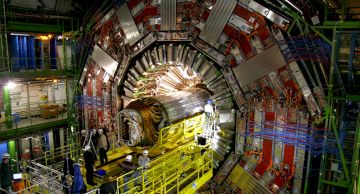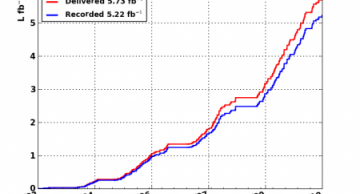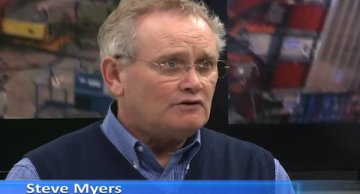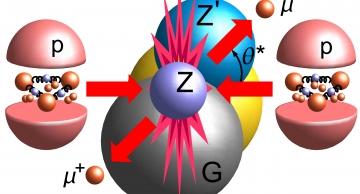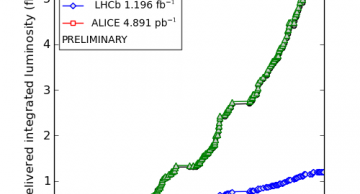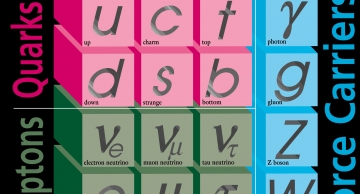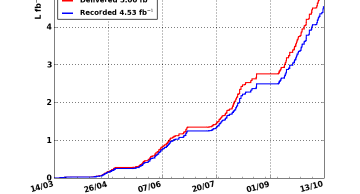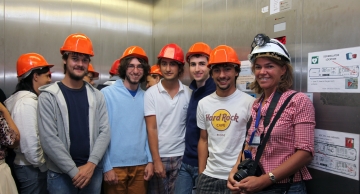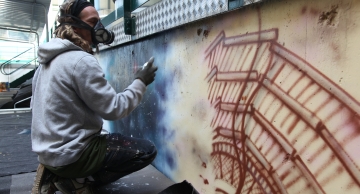The LHC smashes groups of protons together at close to the speed of light: 40 million times per second and with seven times the energy of the most powerful accelerators built up to now. Many of these will just be glancing blows but some will be head…
News
|
achintya |
Collaboration
At about half-past five in the evening on Sunday, 30th October, an e-mail from Run Coordination to the CMS collaboration said:
At 17:00 today the LHC dumped the last proton beams for the year to start the machine development period and to prepare…
|
lucas |
Collaboration
The second episode of the monthly What's new @ CERN TV programme features Steve Myers, Director of Accelerators, on the LHC performance and plans, Yves Schulz of ALICE on Heavy Ion running, and more ...
Watch show on YouTube
|
achintya |
External news (e.g. BBC)
Physicists at CERN's Large Hadron Collider (LHC) are analysing the results of their first attempt at colliding protons and lead ions. Further attempts at proton–lead collisions are expected over the next few weeks...
|
gritsan |
Physics
The source of energy for most of the life on our planet originates from proton-proton collisions at the core of the Sun, which occur at an energy (or temperature) about a billion times less than the collision energy of the LHC. Due to emission of…
|
achintya |
External news (e.g. BBC)
The Large Hadron Collider will spend four weeks probing the conditions of the early universe in better detail than ever before, as it takes a break from the hunt for the Higgs boson...
|
barneyd |
Collaboration
At 17:00 on Sunday 30th October the LHC dumped the last proton beams
for the year to start the machine development period
and to prepare for heavy ion running. This means that we have
come to the end of proton operation for 2011.
In 2011 the LHC…
|
achintya |
Collaboration
The machine just announced going to Proton Physics today in the afternoon since ~5pm. The 25ns Machine Development has been postponed to Monday.
Subsystems experts, please make sure that we are ready for physics and running fine.
Cheers, RFMs…
|
lincoln |
Physics
Grab a can of soda, shake it thoroughly, and open it up. What do you get? It’s an explosion of fizz. A similar phenomenon in the subatomic world might help us probe the nature of fundamental particles.
Scientists have spent centuries searching for…
|
achintya |
Collaboration
The LHC has now delivered 5 inverse femtobarns (fb−1) of data in 2011, of which CMS has collected 4.53 fb−1.
|
cavalari |
Collaboration
This year, for the first time, the winners of the Italian Physics, Mathematics and Informatics Olympiads received an unforgettable reward from the Italian Ministry of Education, University and Research (MIUR): a trip to CERN. The National Institute…
|
mhoch |
Collaboration
You have to be curious and creative to work for a project like CMS. Without these qualities, it would be impossible to build an instrument of its complexity. The CMS detector is a marvellous instrument at the forefront of technology and will open…

